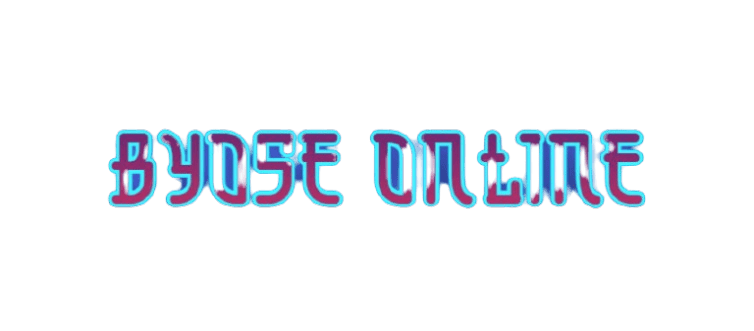The rise of blockchain technology has disrupted industries across the globe, bringing unprecedented levels of transparency, efficiency, and decentralization to traditional business models. From supply chain management to financial services, blockchain is creating innovative solutions that challenge the status quo. In this blog post, we will explore how blockchain is revolutionizing various sectors, its benefits, and why businesses need to adapt to this groundbreaking technology.
What is Blockchain?
At its core, blockchain is a decentralized digital ledger that records transactions across multiple computers. Unlike traditional databases controlled by a central authority, blockchain operates on a peer-to-peer network, ensuring that no single entity has total control. Each block of data is securely linked to the next, creating an immutable chain of information that is virtually tamper-proof.
Key Features of Blockchain Technology:
- Decentralization: Eliminates the need for intermediaries, reducing costs and increasing efficiency.
- Transparency: All participants in the network have access to the same information, fostering trust.
- Immutability: Once data is recorded, it cannot be altered, ensuring integrity.
- Security: Advanced cryptographic algorithms protect data from unauthorized access.
Blockchain’s Impact on Traditional Business Models
1. Financial Services
Blockchain has redefined the financial sector by introducing faster, more secure, and cost-effective transaction methods. Cryptocurrencies like Bitcoin and Ethereum operate on blockchain technology, providing an alternative to traditional banking systems. Additionally, smart contracts—self-executing agreements with predefined conditions—streamline processes such as loan approvals and insurance claims.
Examples:
- Cross-border payments are now quicker and less expensive, bypassing intermediaries like banks.
- Decentralized finance (DeFi) platforms enable peer-to-peer lending, borrowing, and trading without traditional financial institutions.
2. Supply Chain Management
Transparency and traceability are critical in supply chains. Blockchain enables businesses to track goods from production to delivery, ensuring authenticity and ethical practices. For instance, consumers can verify whether products are sustainably sourced or meet specific quality standards.
Examples:
- Walmart uses blockchain to trace food products, reducing contamination risks.
- Fashion brands leverage blockchain to prove the authenticity of luxury goods.
3. Healthcare
Blockchain addresses data privacy and interoperability challenges in the healthcare industry. By securely storing patient records on a decentralized ledger, healthcare providers can access accurate and up-to-date information, improving treatment outcomes.
Examples:
- MediLedger streamlines pharmaceutical supply chains and prevents counterfeit drugs.
- Patients gain control over their medical data, deciding who can access it.
4. Real Estate
Traditional real estate transactions involve lengthy processes and high fees. Blockchain simplifies buying, selling, and leasing properties by digitizing records and automating contracts.
Examples:
- Propy uses blockchain to facilitate cross-border property sales.
- Title deeds are securely stored on blockchain, reducing fraud.
5. Entertainment and Media
Blockchain combats piracy and ensures fair revenue distribution in the entertainment industry. Artists and content creators can monetize their work directly without intermediaries.
Examples:
- Audius allows musicians to distribute music directly to fans, keeping a larger share of profits.
- Blockchain-based platforms track royalty payments accurately.
Advantages of Blockchain for Businesses
- Cost Savings: Eliminating intermediaries reduces operational expenses.
- Enhanced Security: Protects sensitive data from breaches.
- Improved Efficiency: Speeds up processes with automated workflows.
- Increased Trust: Transparent systems foster confidence among stakeholders.
- Global Reach: Facilitates international transactions without currency conversion fees.
Challenges of Blockchain Adoption
Despite its potential, blockchain adoption faces several hurdles:
- Scalability: Managing large volumes of data can strain blockchain networks.
- Regulatory Uncertainty: Governments worldwide are still defining policies for blockchain use.
- Integration Issues: Incorporating blockchain into existing systems can be complex.
- Energy Consumption: Some blockchain networks, like Bitcoin, require significant energy for operation.
Future of Blockchain in Business
The adoption of blockchain is expected to grow exponentially as technology evolves and businesses recognize its benefits. Emerging trends include:
- Enterprise Blockchain Solutions: Companies like IBM and Microsoft offer blockchain platforms tailored for businesses.
- Tokenization of Assets: Real-world assets, such as real estate and art, can be tokenized and traded digitally.
- Interoperability: Efforts to enable communication between different blockchain networks are underway.
- Sustainability: Innovations like proof-of-stake (PoS) aim to reduce the environmental impact of blockchain.
Blockchain is no longer a futuristic concept; it is a transformative force reshaping traditional business models. By embracing blockchain technology, businesses can unlock new opportunities, enhance efficiency, and gain a competitive edge. As the technology matures, its impact will only deepen, making it an indispensable tool for the modern economy.
For businesses yet to explore blockchain’s potential, the time to act is now. The future belongs to those who innovate and adapt—and blockchain is the key to unlocking that future.

